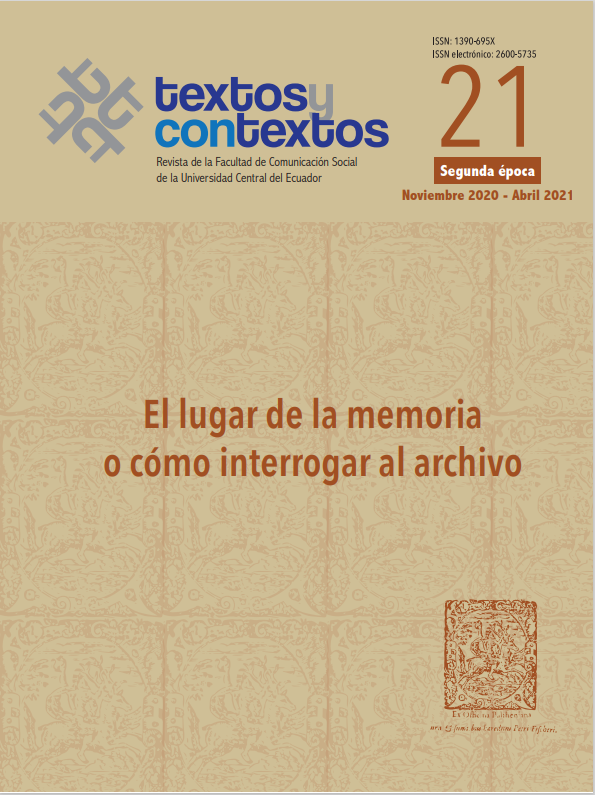The archive and the human condition Critical notes on the abandonment of the market of the merchants who traded with America.
Main Article Content
Abstract
This article is written by two authors: Oscar Llerena and Carlos Levoyer. However, each one has annotated observations to the other author in short paragraphs that the reader will be able to distinguish.
At the beginning, Professor Llerena guides us to one of the essences of modernity and its attitude towards the subject of memory, its project of perpetuation. Proceeds with the reflection, using Foucault while providing a scaffolding to understand the construction in which the official history became in the versions of the so-called Chroniclers of the Indies and the deconstruction operated by Luis Andrade Reimers on the profile of the founder of what today we call Ecuador: Atahualpa. He ends up by emphasizing the importance of documentation from past centuries.
In the second part Levoyer talks about office archives, the little value that certain Ecuadorian bureaucrats grant them, the Spanish libraries and archives. He tells us about his research and findings of Ecuadorian documentation in those archives, the need to insert them with the help of the Human Sciences in their respective historical horizons, the indispensable that it is to transcribe them through palaeography to be able to read them, the steps to make a final palaeographic report. He points out where our colonial documents are, focusing on the General Archive of the Indies, the works that have been done in it, showing that there are very few, in such an amount that he says that are abandoned. Finally he points out the need to encounter such documentation through palaeography to help us face serious issues in our life as a country.
Downloads
Metrics
Article Details

This work is licensed under a Creative Commons Attribution-NonCommercial-NoDerivatives 4.0 International License.




